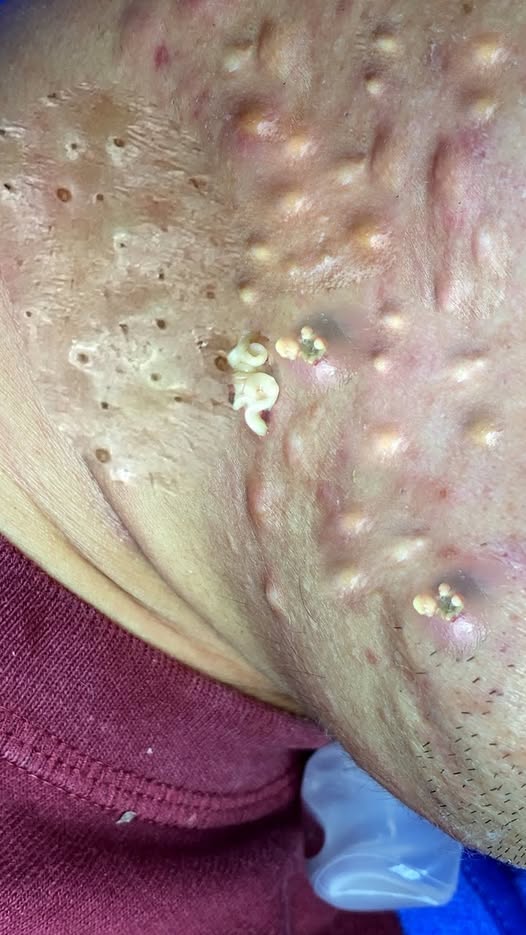🔍 Understanding Types of Pimples
Before treatment, it’s good to know what you’re dealing with:
| Type | Description | Recommended Treatment |
|---|---|---|
| Whiteheads | Closed clogged pores | Salicylic acid, gentle exfoliation |
| Blackheads | Open clogged pores | Salicylic acid, retinoids |
| Papules | Small, red bumps | Benzoyl peroxide, anti-inflammatories |
| Pustules | Pus-filled pimples | Warm compress, topical antibiotics |
| Nodules/Cysts | Deep, painful lumps | Prescription treatment only (dermatologist) |
🧴 At-Home Treatment Options
1. Daily Skincare Routine
A good routine prevents and treats breakouts:
Morning Routine
-
Cleanser: Gentle foaming cleanser with salicylic acid or benzoyl peroxide
e.g., CeraVe Acne Foaming Cleanser -
Toner (optional): Alcohol-free with witch hazel or niacinamide
-
Moisturizer: Oil-free, non-comedogenic
e.g., Neutrogena Hydro Boost -
SPF 30+: Always use sunscreen — even acne-prone skin needs it.
Evening Routine
-
Cleanser: Repeat morning
-
Treatment:
-
Salicylic acid (2%) – unclogs pores
-
Benzoyl peroxide (2.5–5%) – kills acne-causing bacteria
-
Retinoids – unclog pores and speed cell turnover
e.g., adapalene (Differin), available OTC
-
-
Moisturizer: Apply after treatments to prevent dryness
2. Spot Treatments
Use only on active pimples, once or twice a day:
-
Benzoyl peroxide gel – dries and kills bacteria
-
Salicylic acid spot gel – exfoliates and unclogs
-
Sulfur-based creams – good for sensitive skin
-
Hydrocolloid patches – pulls out pus and reduces swelling overnight
3. Natural/Home Remedies (use with caution)
| Remedy | How It Helps | How to Use |
|---|---|---|
| Tea tree oil | Antibacterial | Dilute with carrier oil, dab on pimples |
| Aloe vera | Soothing, anti-inflammatory | Apply fresh gel directly |
| Honey + cinnamon | Antimicrobial | Apply as mask for 10–15 mins |
🏥 Professional Treatments (Dermatologist)
If at-home care isn’t enough or acne is severe:
1. Prescription Topicals
-
Tretinoin / Retinoids – strong cell turnover
-
Clindamycin / Erythromycin – topical antibiotics
-
Azelaic acid – for post-acne marks + inflammation
2. Oral Medications
-
Antibiotics (e.g. doxycycline) – for inflamed acne
-
Birth control pills – regulate hormones (for females)
-
Spironolactone – hormonal acne (females only)
-
Isotretinoin (Accutane) – for cystic/severe acne (very effective, but with side effects)
3. In-Office Treatments
-
Chemical peels – improve skin texture and treat acne
-
Laser or light therapy – reduce bacteria and oil
-
Corticosteroid injections – for large cysts
-
Extraction – performed hygienically by a pro
🔄 Lifestyle Tips for Clearer Skin
-
Don’t pick or pop pimples
-
Change pillowcases regularly
-
Avoid heavy makeup or use non-comedogenic brands
-
Keep hands off your face
-
Stay hydrated and eat a balanced diet
-
Manage stress – it can trigger breakouts
⚠️ When to See a Dermatologist
See a skin specialist if:
-
Pimples are painful, deep, or leaving scars
-
OTC products aren’t helping after 8–12 weeks
-
You have frequent breakouts despite good hygiene
